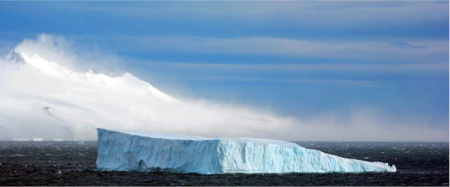| SEARCH |
-

Nov 17, 2015
Reflections on a three-decade legacy
The International Geosphere-Biosphere Programme (IGBP) will come to a close at t...
-
Nov 17, 2015
Use of and access to content on this website
Text and images produced by IGBP in house are free to use with appropriate credi...
-
Nov 12, 2015
Bella Gaia performance and panel discussion to mark IGBP's closure
A musical performance by Bella Gaia will celebrate the achievements and legacy o...
-

Towards Future Earth:
evolution or revolution?
During its three decades of existence, the International Geosphere-Biosphere Pro...
-
A personal note on IGBP and the social sciences
Humans are an integral component of the Earth system as conceptualised by IGBP. João Morais recalls key milestones in IGBP’s engagement with the social sciences and offers some words of advice for Future Earth.
-
IGBP and Earth observation:
a co-evolution
The iconic images of Earth beamed back by the earliest spacecraft helped to galvanise interest in our planet’s environment. The subsequent evolution and development of satellites for Earth observation has been intricately linked with that of IGBP and other global-change research programmes, write Jack Kaye and Cat Downy .
-
Deltas at risk
Around 500 million people worldwide live on deltas, but many of the world's deltas are sinking due ...
-
Climate change: the state of the science
A new data visualization released on the first day of the plenary negotiations at the UNFCCC’s clima...
-
Climate Change:
the State of the Science
Videos now online from the Stockholm public forum to mark the launch of the IPCC's climate report, 2...
Warming up, turning sour,
losing breath: ocean biogeochemistry under
global change
Gruber N
Vol 369; pp. 1980-1996

In the coming decades and centuries, the ocean’s biogeochemical cycles and ecosystems will become increasingly stressed by at least three independent factors. Rising temperatures, ocean acidification and ocean deoxygenation will cause substantial changes in the physical, chemical and biological environment, which will then affect the ocean’s biogeochemical cycles and ecosystems in ways that we are only beginning to fathom. Ocean warming will not only affect organisms and biogeochemical cycles directly, but will also increase upper ocean stratification. The changes in the ocean’s carbonate chemistry induced by the uptake of anthropogenic carbon dioxide (CO2) (i.e. ocean acidification) will probably affect many organisms and processes, although in ways that are currently not well understood. Ocean deoxygenation, i.e. the loss of dissolved oxygen (O2) from the ocean, is bound to occur in a warming and more stratified ocean, causing stress to macro-organisms that critically depend on sufficient levels of oxygen. These three stressors—warming, acidification and deoxygenation—will tend to operate globally, although with distinct regional differences. The impacts of ocean acidification tend to be strongest in the high latitudes, whereas the low-oxygen regions of the low latitudes are most vulnerable to ocean deoxygenation. Specific regions, such as the eastern boundary upwelling systems, will be strongly affected by all three stressors, making them potential hotspots for change. Of additional concern are synergistic effects, such as ocean acidification-induced changes in the type and magnitude of the organic matter exported to the ocean’s interior, which then might cause substantial changes in the oxygen concentration there. Ocean warming, acidification and deoxygenation are essentially irreversible on centennial time scales, i.e. once these changes have occurred, it will take centuries for the ocean to recover. With the emission of CO2 being the primary driver behind all three stressors, the primary mitigation strategy is to reduce these emissions.

IGBP closed at the end of 2015. This website is no longer updated.
-

Global Change Magazine No. 84
This final issue of the magazine takes stock of IGBP’s scientific and institutional accomplishments as well as its contributions to policy and capacity building. It features interviews of several past...
-

Global Change Magazine No. 83
This issue features a special section on carbon. You can read about peak greenhouse-gas emissions in China, the mitigation of black carbon emissions and the effect of the 2010-2011 La Niña event on gl...
-
INTERGOVERNMENTAL PANEL ON CLIMATE CHANGE:
How green is my future?
UN panel foresees big growth in renewable energy, but policies will dictate just how big.
-
UK:
'The Anthropocene: a new epoch of geological time?'
Royal Society, Philosphical Transactions A


















